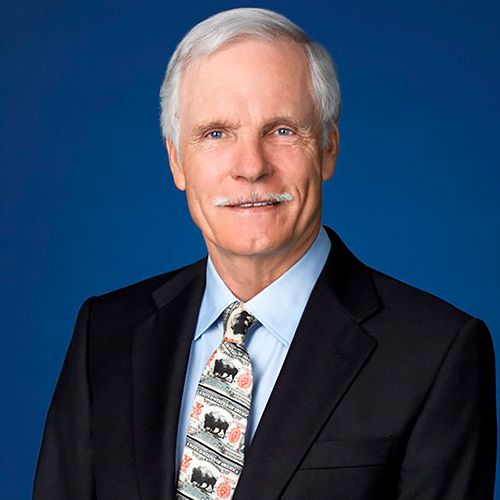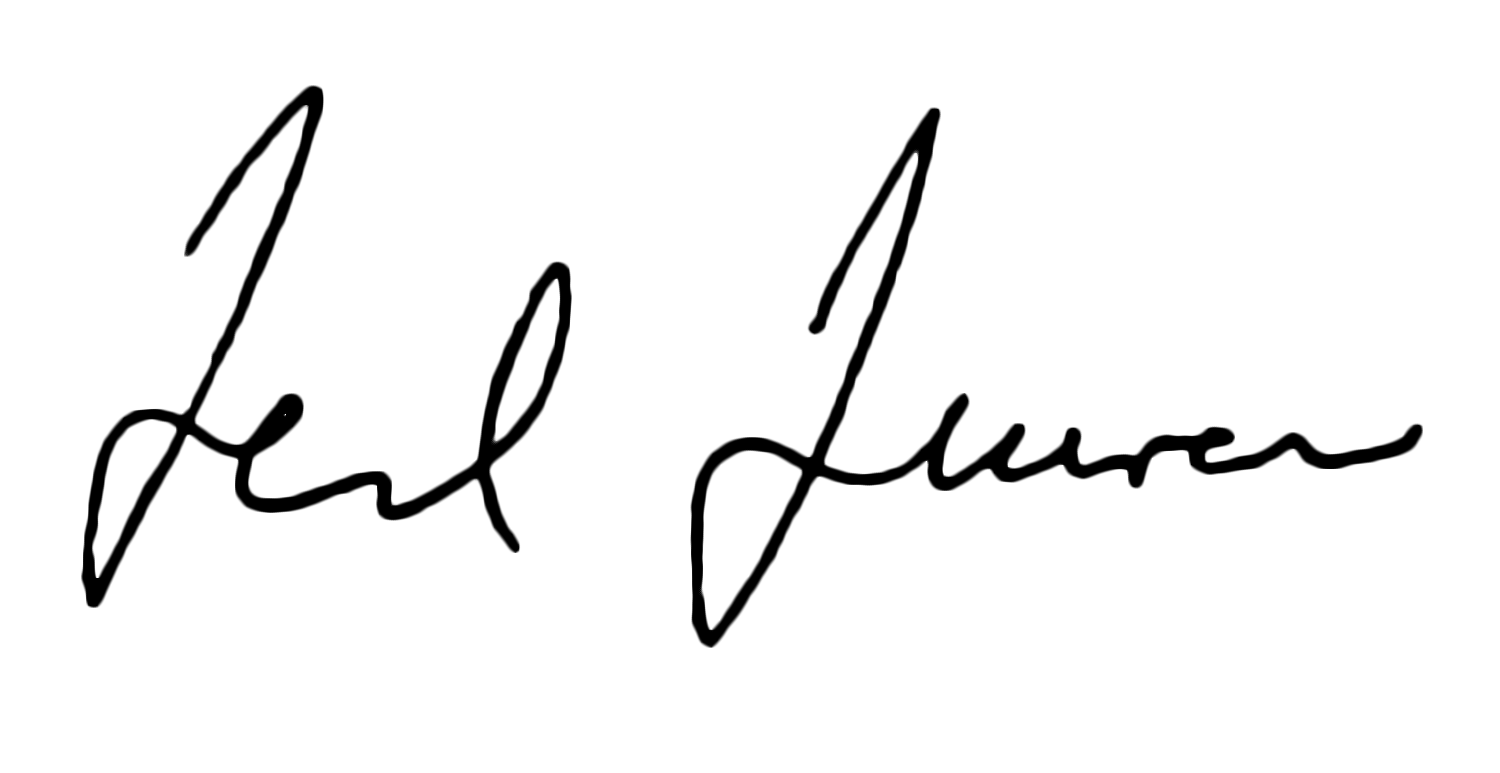
Ted Turner
I'm particularly thankful for my father's advice to set goals so high that they can't possibly be achieved during a lifetime and to give help where help is needed most. That inspiration keeps me energized and eager to keep working hard every day on giving back and making the world a better place for generations to come."
Pledge letter
Ted Turner’s philosophy on philanthropy and personal giving:
Giving back was instilled in me by my father at a young age. In addition to being active with Rotary and other civic organizations, my dad was also philanthropic with his own small resources. Not only did he make contributions to causes that he cared about, he also supported the tuition of two African-American students at his alma mater, Milsaps College in the late 1950s. It made a big impression on me to see someone as hard-charging as my father take the time to quietly help out two young people like this. Sometime during the 1970s, before I made a significant amount of money, I attended a seminar on philanthropy. At dinner I was seated next to a man who was quite a bit older than I and we began discussing charitable foundations. He told me about his family’s foundation and the good things they were doing around the world. I filed this away in my mind and told myself that if I were ever wealthy enough to have a foundation, I’d be sure to make it a family foundation so that my children would be involved and understand the importance of giving back.
Fast forward twenty years to September 1997. I was being honored as the 1997 Man of the Year by the United Nations Association and I was contemplating what I’d say that evening. Good thoughts about my family’s foundation, the Turner Foundation, starting flooding my mind, and I smiled at the fact that we had already invested several hundred million dollars in grants and had made a significant impact on so many people and organizations around the world. I wish I could remember who that man was who first gave me the idea for a family foundation, because I owe him a debt of gratitude. The Turner Foundation helped me understand the impact we all can have through philanthropic contributions. My experiences with organizations like the Better World Society opened my eyes to the power of assembling a team of international leaders to address global issues. Had I not experienced working with these two organizations, I don’t think I would have had the confidence to move forward with what I was about to propose to the United Nations that evening. That was the night my $1 billion pledge was heard around the world and the United Nations Foundation was born. I also made it clear that while the amount I was giving away was certainly a lot of money, I was also putting other rich people on notice that I would be calling on them to be more generous. Now that I was pledging such a large amount, I could lead by example, and it was time for me to get out in front of the parade.
Over the years, the United Nations Foundation has done innovative work to make the world a better place and has helped strengthen the U.N. in the process. This gives me a lot of satisfaction, as have my efforts to influence other wealthy people to become more active in philanthropy. After the billion dollar pledge, I challenged my fellow billionaires to do more. I realized that many of them used their net worth as a way to keep score and they enjoyed seeing where they ranked on lists put out by magazines like Fortune and Forbes. Understanding how competitive most of these people were, I called on the media to start publishing lists of people who gave away the most. I figured that this would not only motivate people to try to get to the top of the philanthropy list, it could also shame some whose names didn’t show up. Slate.com was the first to take up the list idea and other media outlets joined in later.
To date, I’ve visited more than 60 countries in every part of the world. In addition to making a lot of friends, I’ve also seen firsthand the desperate challenges facing so many people. It’s been eye-opening for me and I’ve discovered that the more people you meet, the more you learn, and the more you learn, the more you want to help, and the more you help, the better you feel. These days, I’m putting my resources and energies toward tackling the world’s more important issues. The three problems that concern me the most are the threat of nuclear annihilation, climate change and the continuing growth of the world’s population. Sometimes these problems can seem overwhelming, and when they do, I remind myself of a conversation I had many years ago with Jacques Cousteau. I asked him if he ever got discouraged or worried that the problems he was working on were insurmountable. He looked at me and said, “Ted, it could be that these problems can’t be solved, but what can men of good conscience do but keep trying until the very end?” At that moment, his very words inspired me to want to do even more.
I don’t measure success in numbers, but I consider my contributions of more than 1.3 billion dollars to various causes over the years to be one of my proudest accomplishments and the best investment I’ve ever made. Those dollars have improved lives, saved species, fought disease, educated children, inspired change, challenged ideas and opened minds; and at the time of my death, virtually all of my wealth will have gone to charity.
Looking back, if I had to live my life over, there are things I would do differently, but the one thing I would not change is my charitable giving. I’m particularly thankful for my father’s advice to set goals so high that they can’t possibly be achieved during a lifetime and to give help where help is needed most. That inspiration keeps me energized and eager to keep working hard every day on giving back and making the world a better place for generations to come.

